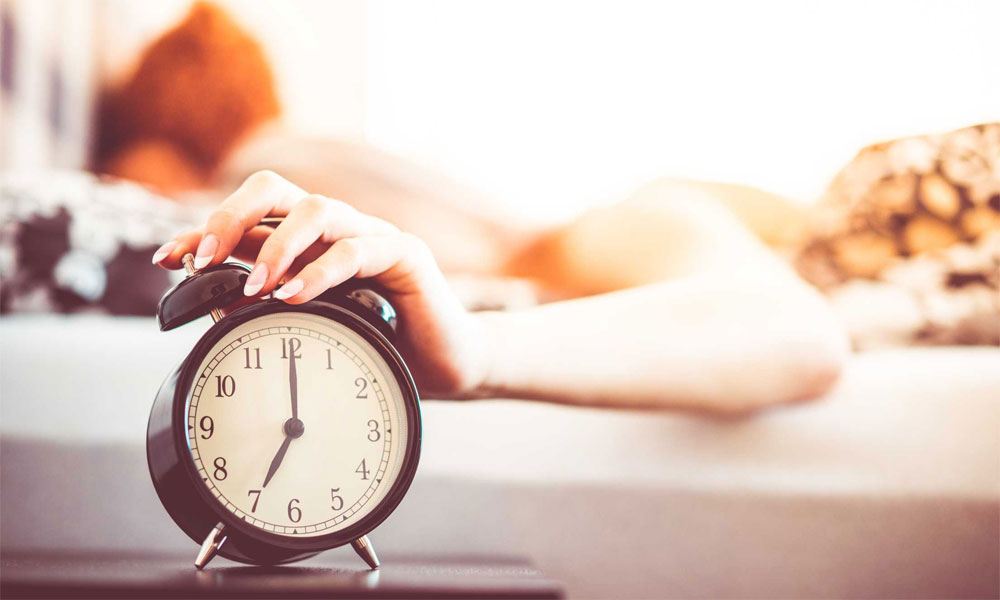Sleep Quality Versus Quantity…Which is More Essential?

Many individuals debate about sleep high quality versus amount – which ought to we prioritize? A brand new MIT research reveals the answer. Eye-opening sleep analysis on the working poor in India discovered that sleep high quality slightly than amount made a extra vital impression on well being.
According to the sleep research, getting extra sleep didn’t alter work productiveness or general well being for impoverished staff in India. However, naps or higher high quality sleep at evening did produce constructive outcomes.
This counters the recommendation of contemporary scientists who inform us to get extra shut-eye. It appears that 5 hours of high-quality sleep could have extra advantages than eight hours of interrupted sleep. For individuals who virtually should pencil sleep into their schedules, this could come as welcome information. It actually makes a distinction for poor staff in India who can’t afford to sleep longer hours.
About the Study on Sleep Quality Versus Quantity
Based on a area experiment of low-income staff in Chennai, India, the research yielded important findings about sleep. For the experiment, researchers noticed residents at dwelling throughout their on a regular basis routines. The scientists gave contributors ideas for higher sleep, which appeared to repay. On common, the contributors slept about 30 further minutes per evening, a big achieve.
However, the researchers discovered no distinction within the following metrics from elevated sleep:
- work productiveness
- earnings
- monetary decisions
- sense of well-being
- blood strain
In truth, sleeping extra solely lower into their work hours, leading to decrease pay.
“To our surprise, these night-sleep interventions had no positive effects whatsoever on any of the outcomes we measured,” says Frank Schilbach, an MIT economist and co-author of the paper summarizing the research.
The paper is titled “The Economic Consequences of Increasing Sleep Among the Urban Poor.” It’s been printed within the August challenge of The Quarterly Journal of Economics.
How poverty impacts sleep high quality
The outcomes appear counterintuitive; wouldn’t extra sleep yield a greater high quality of life? Researchers say not essentially.
Nighttime sleep high quality and period rely totally on environmental and societal components. For instance, the contributors residing in Chennai handled many interruptions and challenges at evening, resulting in low-quality sleep. So, even when they slept longer hours, that didn’t imply they essentially acquired deeper, higher sleep.
However, they did discover that daytime naps elevated productiveness and well-being, partially countering the antagonistic results of poor nighttime sleep. The findings present that sleeping extra soundly, no matter hours slept, could considerably impression well being.
“People’s sleep quality is so low in these circumstances in Chennai that adding sleep of poor quality may not have the benefits that another half hour of sleep would have if it’s of higher quality,” Schilbach suggests.
Schilbach, a improvement economist, says the research builds on earlier analysis he and his colleagues have executed in areas like Chennai. In these settings, the researchers discovered that low-income individuals typically stay in areas inconducive to sleep. Compounded with different day by day challenges, this makes it difficult to get restful sleep at evening.
“In Chennai, you can see people sleeping on their rickshaws,” says Schilbach, who is additionally a college affiliate at MIT’s Abdul Latif Jameel Poverty Action Lab (J-PAL). “Often, there are four or five people sleeping in the same room where it’s loud and noisy. You see people sleep in between road segments next to a highway. It’s incredibly hot even at night, and there are lots of mosquitos. Essentially, in Chennai, you can find any potential irritant or adverse sleep factor.”
The research on sleep high quality versus amount
For the research, researchers gave the contributors actigraphs or wristwatches to trace sleep states from physique actions. This gave the workforce entry to vital information whereas the contributors slept. Most sleep research happen in labs, so this experiment provided distinctive perception on sleep high quality versus amount.
The research noticed 452 individuals over the course of a month. Researchers provided some contributors encouragement and ideas for improved sleep. Others obtained monetary incentives to sleep longer hours. In addition, some members from each teams took daytime naps to see how they impacted their sleep.
Finally, the contributors took data-entry jobs with versatile hours throughout the research. This made it simpler for researchers to trace the consequences of sleep on employee output and revenue.
On common, the research contributors slept about 5.5 hours per evening earlier than the research. During the research, they slept about 27 further minutes per evening. However, the contributors stayed in mattress an additional 38 minutes an evening to achieve extra sleep. This remark reveals how tough it is for Chennai residents to sleep soundly at evening. Sadly, they awakened about 31 occasions per evening on common attributable to noise, bugs, or different disturbances.
“A key thing that stands out is that people’s sleep efficiency is low, that is, their sleep is heavily fragmented,” Schilbach says. “They have extremely few periods experiencing what’s thought to be the restorative benefits of deep sleep. People’s sleep quantity went up due to the interventions, because they spent more time in bed, but their sleep quality was unchanged.”
This explains why most individuals within the research didn’t profit from sleeping longer.
Schilbach added, “We find one negative effect, which is on hours worked. If you spend more time in bed, then you have less time for other things in your life.”
Naps assist however lower into earnings for low-income staff
Researchers discovered that the contributors who took naps had improved markers in a number of areas.
“In contrast to the night sleep intervention, we find clear evidence of naps improving a range of outcomes, including their productivity, their cognitive function, and their psychological well-being, as well as some evidence on savings,” Schilbach says. “These two interventions have different effects.”
However, the naps solely led to increased revenue when in comparison with staff who took a break as a substitute. Workers didn’t truly earn extra as a result of naps; that they had elevated productiveness however spent much less time working.
“It’s not the case that naps just pay for themselves,” Schilbach says. “People don’t actually stay longer in the office when they nap, presumably because they have other things to do, such as taking care of their families. If people nap for about half an hour, their hours worked falls by almost half an hour, almost a one-to-one ratio, and as a result, people’s earnings in that group are lower.”
Final Thought: Everyone can profit from higher sleep high quality (versus amount)
Schilbach says he hopes the research on sleep high quality versus amount will result in additional analysis sooner or later. For occasion, altering the sleeping setting of low-income staff might yield completely different outcomes. Perhaps their sleep high quality, not simply amount, would enhance if their circumstances modified.
The economist added that it’s vital to think about how psychological components impression sleep high quality in low-income individuals. Schilbach says the next:
“Being poor is very stressful, and that might interfere with people’s sleep. Addressing how environmental and psychological factors affect sleep quality is something worth examining.”
He says that utilizing wristwatches that monitor sleep high quality will change the scope of research sooner or later. This permits researchers extra flexibility since they’ll observe individuals of their on a regular basis lives slightly than only a laboratory.
“There’s not a lot of work studying people’s sleep in their everyday lives,” Schilbach says. “And I really hope people will study sleep more in developing countries and poor countries, focusing on outcomes that people value.”
“Sleep might be important as an avenue for improved productivity or other types of choices people make,” Schilbach says. “But I think a good night’s sleep is also important in and of itself. We should value being able to afford to sleep well and not be worried at night. Poverty indices are about income and material consumption. But now that we can measure sleep better, a good night’s sleep should be part of a more comprehensive measure of people’s well-being. I hope that’s where we’re going eventually.”
In conclusion, the research on sleep high quality versus amount exhibits how poverty creates much more obstacles to a very good evening’s sleep. However, everybody deserves and desires restful sleep. Hopefully, additional analysis will assist those that stay in poverty enhance their sleep high quality and general well-being.












